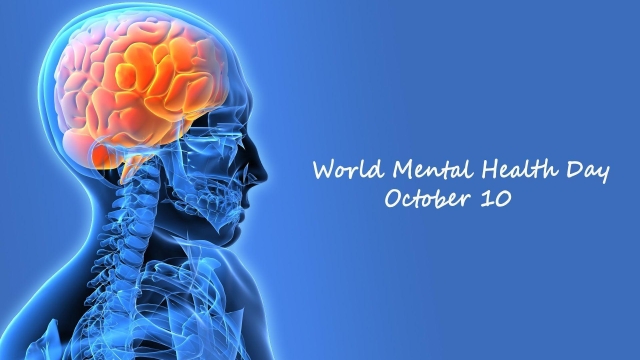Mental health is a subject that touches the lives of countless individuals, influencing our thoughts, emotions, and overall well-being. It is a topic that deserves sincere attention and understanding, especially when it comes to the mental health of teenagers. Adolescence can be a turbulent time, filled with unique challenges and experiences that can impact one’s mental state. That is why teen mental health therapy becomes an essential guide, providing support and guidance to navigate the complexities of the teenage mind. In this article, we embark on a journey to unmask the mind, delving into the depths of mental health and exploring the crucial role that therapy plays in helping teens regain their balance and find healing. Together, we’ll unravel the layers of their emotional landscape, ultimately aiming to shed light on this vital aspect of their lives.
Understanding Teen Mental Health
Teen mental health is a crucial aspect of overall well-being during the adolescent years. It involves understanding and addressing the unique challenges and needs that young people face in relation to their mental well-being.
During this stage of development, teenagers experience various physical, emotional, and social changes that can have a significant impact on their mental health. Hormonal fluctuations, academic pressures, peer relationships, and identity formation are just a few factors that can contribute to the complexity of their mental health.
It is important to recognize that teenagers may exhibit different symptoms or behaviors compared to adults when it comes to mental health issues. Adolescents may struggle with managing stress, regulating their emotions, or effectively communicating their thoughts and feelings. As a result, providing appropriate support and guidance is essential to promote their mental wellness.
Teen mental health therapy can play a crucial role in addressing these challenges. Through therapy, teenagers can learn healthy coping mechanisms, develop effective communication skills, and gain the necessary tools to navigate the ups and downs of adolescence. Professional therapists specializing in working with teens can provide a safe and non-judgmental space for them to express themselves and explore their emotions.
By understanding the unique aspects of teen mental health and providing access to therapy, we can empower young people to proactively manage their mental well-being and build a solid foundation for a healthier future.
Different Types of Therapy for Teens
Teens require specialized mental health therapy to address their unique needs. Here are three different types of therapy that are commonly used to support teenagers’ mental well-being:
-
Cognitive Behavioral Therapy (CBT): CBT is a widely practiced therapy technique that focuses on helping teens identify and change negative thought patterns. Through regular sessions with a trained therapist, teenagers learn healthier ways of thinking and develop effective coping strategies to manage stress, anxiety, and depression.
-
Dialectical Behavior Therapy (DBT): DBT is often recommended for teens struggling with emotional regulation and interpersonal difficulties. This therapy approach combines elements of CBT with mindfulness techniques. It aims to enhance emotional control, improve communication skills, and foster better relationships with peers and family members.
- Teen Mental Health Treatment In Boise
Family Therapy: Family therapy involves the participation of the entire family in the therapeutic process. It recognizes that the well-being of teens is closely interconnected with family dynamics. By addressing underlying family conflicts and improving communication, family therapy helps foster a supportive environment for the teen’s mental health recovery.
Remember, every teenager is unique, and what works for one may not work for another. It’s essential to work closely with a mental health professional to determine the most suitable therapy approach for individual teens, based on their specific needs and circumstances.

Finding the Right Mental Health Support
When it comes to teen mental health therapy, finding the right support is crucial. It can make all the difference in helping teenagers navigate their emotions, overcome challenges, and build resilience. With the right guidance and resources, they can develop lifelong coping strategies and thrive.
-
Understanding their needs: The first step in finding the right mental health support for teenagers is understanding their unique needs. Adolescence is a time of immense growth and change, both physically and emotionally. It’s important to take into consideration factors such as their individual personality, experiences, and specific mental health concerns. By truly understanding their needs, you can find the support that aligns with their requirements.
-
Researching available options: There are various options available for teen mental health therapy, so it’s important to do thorough research. Start by exploring different therapy approaches such as cognitive-behavioral therapy, mindfulness-based therapy, or family therapy. Look for professionals who specialize in working with teenagers and have experience in the specific areas your teen may need assistance with.
-
Seeking recommendations and reviews: Recommendations from trusted sources can be invaluable in finding the right mental health support. Talk to school counselors, pediatricians, or other parents who have gone through similar experiences. Their insights and experiences can provide valuable information about the effectiveness and suitability of different therapists and therapy programs. Additionally, online reviews and testimonials can also offer insights into the experiences of others who have sought teen mental health therapy.
Remember, finding the right mental health support for teenagers is a proactive and ongoing process. It may take time, patience, and a bit of trial and error. However, by understanding their needs, researching available options, and seeking recommendations, you can set them on a path towards mental well-being and a brighter future.




